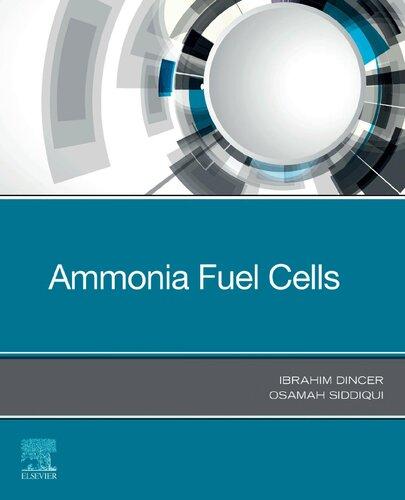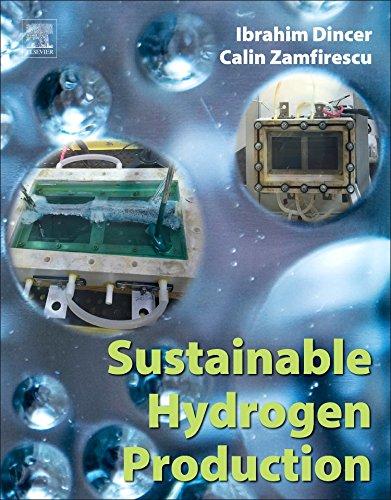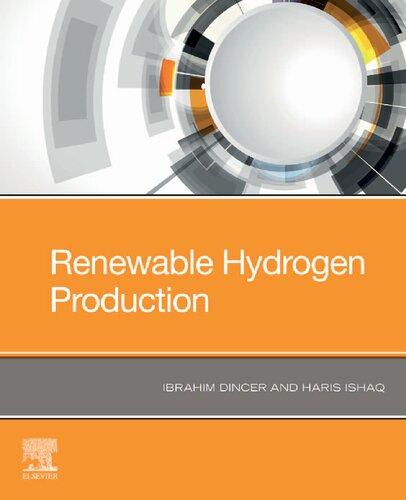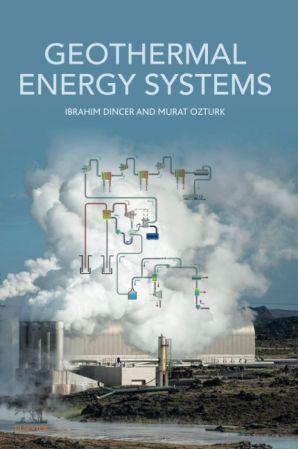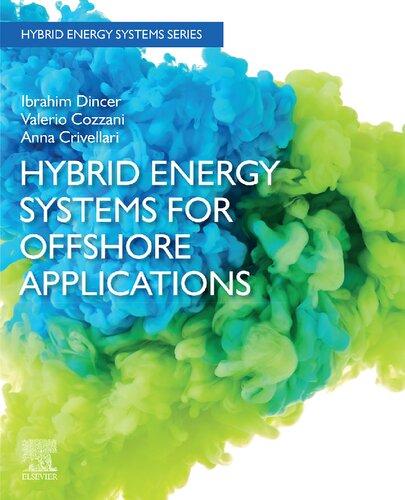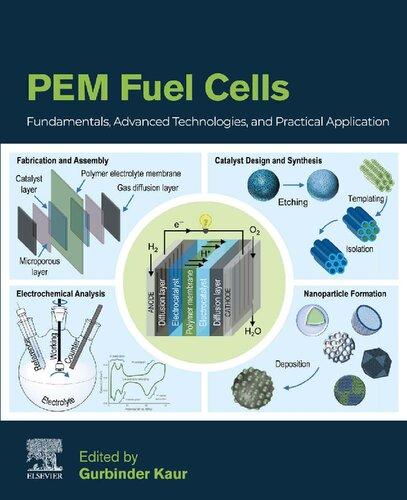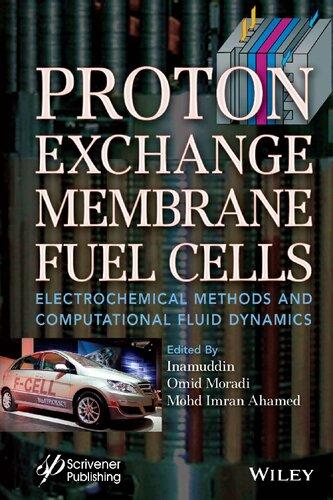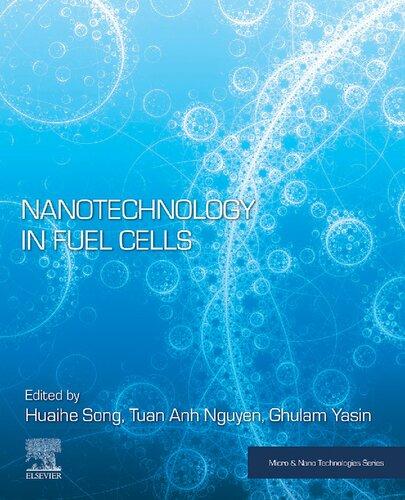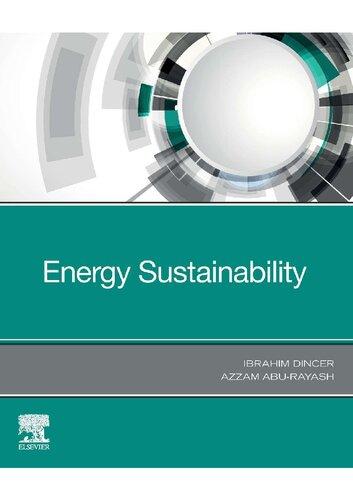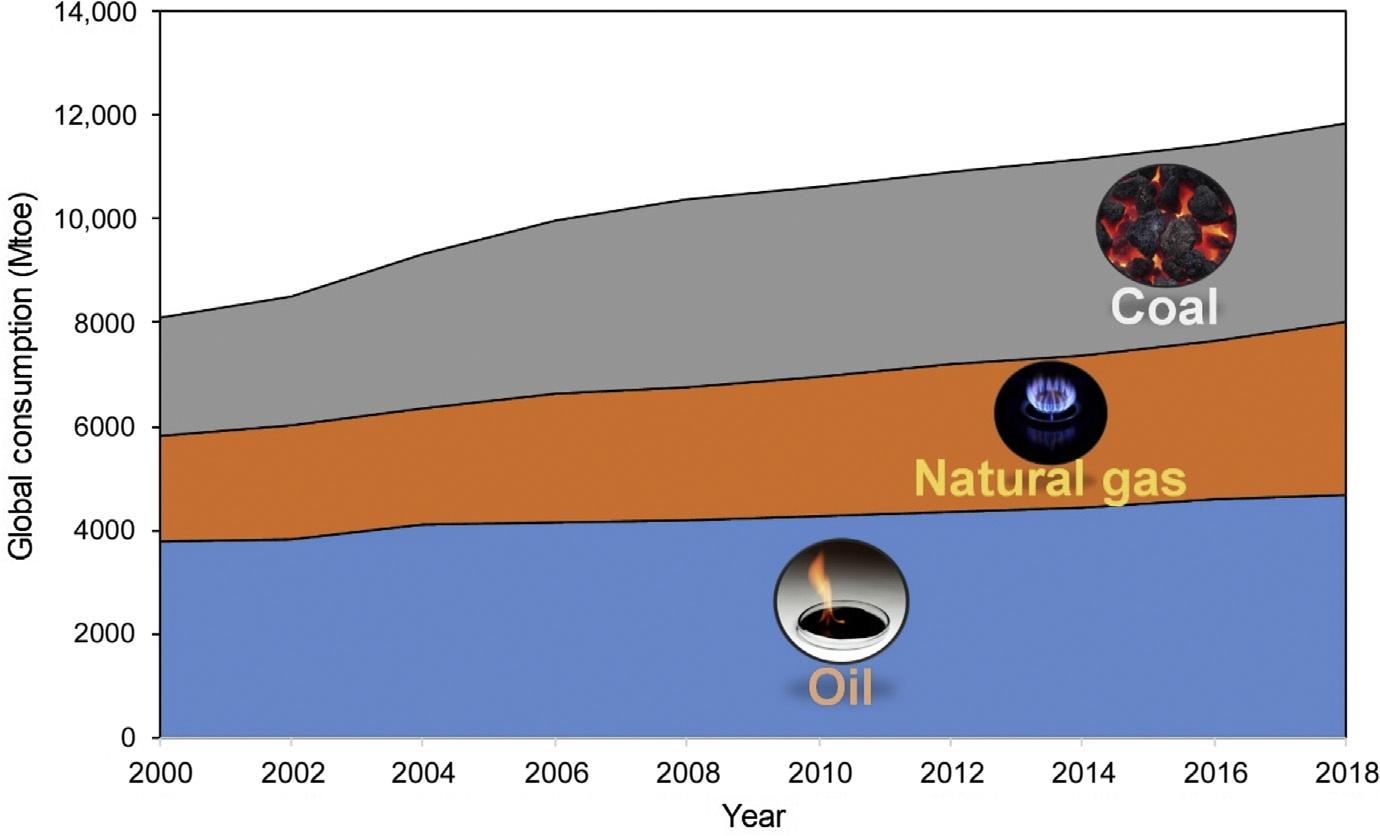Introduction 1
Sincetheindustrialrevolution,powergenerationhasbeenplayingavitalrolein theadvancementofanynation,whichhas,therefore,becomeacentralelementof anyeconomythatdrivestheincreaseordecreaseinthenationalproductionlevels. Acontinuousandreliablegenerationofpowerisessentialtoattainasustainableand stableeconomyaswellasindustrialsector.However,theincreaseddependenceon fossilfuelsforpowergenerationintherecentdecadeshasdeterioratedtheenvironmentconsiderably.Thechangeintheglobalprimaryenergydemandssince2010 aredepictedin Fig.1.1.Theenergydemandsincreasedbynearly1.5%inthebeginningofthepreviousdecade.Thisriseindemandshasdecreasedmarginallyinthe beginningofthisdecade.Also,towardthemiddleofthisdecade,theprimaryenergy demandshadincreasedbyacomparativelyloweramount.Nevertheless,since2016 theenergydemandshaverisensharplywheretheriseincreasedfrom0.6%in2016 to2%in2017.Thishasincreasedfurtherto2.9%in2018.Hence,everyyeardue toseveralfactors,suchasindustrialization,urbanizationandmoderndevelopment, thespecificenergydemandstendtoincreasecontinuously.Thechangeintheamount ofincreasehasvariedintherecentpast,however,therehasbeenasteadyincreasein thedemands.Moreover,astheworldswiftlymovestowardatechnology-enriched livelihood,thedemandsforenergyareexpectedtoriserigorously.Theenergy demandsareofparticularinterestduetotheirdirectrelationwithenvironmental impacts.Currently,theglobalenergyproductionheavilyreliesonfossilfuelsand theincreaseinenergydemandswilldirectlyaffecttheusageoffossilsacross theglobe.Thisisattributabletovariousfactors.First,thepowergenerationsector thatprovideselectricitytorunanyindustry,corporateoffice,ortransportation sectorisdependentonfossilfuelsacrosstheglobe.Thisimpliesthatastechnical andinfrastructuraldevelopmentcontinuestoproceed,theusageofcarbon-rich andenvironmentallydetrimentalfuelscontinuestorise.Inaddition,invarious sectorssuchastransportation,thecurrenttechnologyincludestheusageofhydrocarbonfuels,whichhasledtosignificantenvironmentaldetrimentsacrosstheglobe.
Suchalarmingfactshaveledtoseriousconcernsacrosstheglobeandinvarious countriesattentionisbeingpaidtowardreducingthedependenceonaswellasusage offossilfuels.However,inseveralpartsoftheworld,fossilfuel-basedresources comprisethemajorenergysourcesandtheirdependencecouldnotbereduced significantlyuntilrecently. Fig.1.2 depictsthetotalusageofcoal,oil,andnatural gasacrosstheglobesincetheyear2000.Ascanbeobservedfromthefigure,the usageofeachofthesecarbon-richenergyresourceshasincreasedcontinuously.
AmmoniaFuelCells. https://doi.org/10.1016/B978-0-12-822825-8.00001-3
FIG.1.1
Percentagechangeinglobalenergydemandbasedon2009.
DatafromRef. [1]
FIG.1.2
Globalconsumptionofcoal,naturalgas,andoil.
DatafromRef. [2]
Althoughvariousglobaleffortsandagreementsweremadetoreducefossilusageas wellasassociatedenvironmentalimpacts,theusageofsuchresourceshasincreased steadilyasshowninthefigure.Thisisattributabletovariousfactorssuchas increasedenergydemands.Tomeettheenergydemands,thesereadilyavailable resourcesareutilizedextensivelyacrosstheglobeleadingtoconsiderableenvironmentaldamage.Theusageofcoalincreasedfromnearly2300Mtoein2000tonearly 3800Mtoein2018.Thisdenotesasignificantincreaseof65%,whichshowsthe heavydependenceofvariouscountriesonfossilfuelsacrosstheglobe.Similarly, theglobalusageofnaturalgasincreasedfromapproximately2000Mtoein2000 tonearly3340Mtoein2018.Thisalsosignifiesanincreaseof67%intheusage ofthecarbon-richfossilfuel.Inaddition,oilisalsousedextensivelyinvarious sectorsrangingfromtheindustrialsectortothetransportationsector.Theusage ofoilhasalsoseenasteadyincreaseintherecentyearswhereanincreaseofnearly 25%isobservedfrom2000to2018.Theseareglobalestimatesthatconstitutethe usagebyallcountries.Somecountrieswherefossilfuel-basedenergyresources areasourceofincomeandaidinthedevelopmentoftheeconomy,entailasteady increaseintheproductionaswellasusageofcarbon-richfuels.However,these nationscouldessentiallydirecteffortstowardtheutilizationofcleanandrenewable energyresourceswhereapplicable.Forinstance,somegeographicallocations receivehigh-intensitysolarradiationacrosstheyear.Suchlocationsshouldemploy differenttypesofsolar-basedpowergenerationtechniques.Similarly,somelocationshavehighwindenergypotentialacrosstheyearthatshouldbeharvested.Also, otherrenewableenergyresourcesincludingbiomass,geothermal,andhydropower shouldalsobeconsideredwheretheyaresuitablyapplicable.
Therecentbreakdownofenergyresourceutilizationacrosstheglobeisdepicted in Fig.1.3 wheretheglobalpercentageofenergyresourcesusedforprimaryenergy supplyispresented.Asdepictedinthefigure,majorityoftheenergysupplywas attainedfromcarbon-richresources.Theseincluded27%coal,22%naturalgas, and32%oilresources [3].Thesethreecarbon-richfossilfuelscomprisenearly 80%ofthetotalfossilfuelusage.Thedeploymentofcleanenergyresourcessuch asbiofuels,nuclear,solar,etc.,entailsaminorportionoftheoverallusage.Although, aftercollectiveandcollaborativeefforts,thepercentageusageofcleanfuelshasrisen intherecentyears,thepresentscenariostillentailsaheavydependenceoncarbonrichfossilfuels.Theusageofbiofuelandwasteforpowergenerationhasgained paceandhasbeenimplementedinvariouscountriesacrosstheglobe.Thisentails theproductionofbiofuelsfromwastethatcomprisesusefulfuelssuchasethanol andbiodiesel.Ethanolcanbemadefromseveralplant-basedrawmaterialsthat aregenerallyreferredtoasplantbiomass.Moreover,biogasisanothertypeofbiofuelthatisproducedfromtheanaerobicdigestionoforganicmatter.Rawmaterials includingmanure,sewage,aswellasagriculturalwastecanbedeployedtoproduce biogas.Thiscomprisesmainlymethaneandcarbondioxide.Sincemethanehasa sufficientvalueofcombustionheatthatisemittedwhenburntwithoxygen,itisused asafuelforpowergeneration.AlthoughbiogasalsoentailsCO2 emissionswithits usageasafuel,itisgenerallyconsideredasarenewableenergyresourceowingtothe

Percentageofresourcesutilizedforprimaryenergysupplyglobally.
DatafromRef. [3]
carboncycle.Inthisprocess,theCO2 emissionsresultingfromthecombustionof biofuelisrecycledthroughitsusagebyplantsduringphotosynthesis.Plantsuse CO2 tosynthesizeglucosethroughthephotosynthesisreactionthatincludesthe productionofglucosefromwaterandcarbondioxideinthepresenceofsunlight. Moreover,nuclearpowerisalsoconsideredtobeenvironmentallybenignbyvarious well-knownorganizationsasitdoesnotresultincarbonemissions.However,there areotherenvironmentalaswellassafetyhazardsassociatedwiththeusageofnuclear powerthathaveraisedconcernsinvariouspartsoftheworld.Inaddition,thenuclear powerplantaccidentsandtragediesresultedindecreasedattentiontowardnuclearbasedpowergeneration.Theseresourcesentailhighcarboncontentandthusresults inconsiderableamountofgreenhousegas(GHG)emissions.
TheCO2 emissionsthatresultedgloballyfromenergy-relatedfossilfuelusagein thepast20yearsfrom1998to2018aredepictedin Fig.1.4.Asdepictedinthefigure, therehasbeenasignificantincreaseintheCO2 emissionsinthepastdecade.In1998, theglobalCO2 emissionfromenergy-relatedfossilfuelutilizationwasrecordedto be23.4Gtonne.Thisincreasedsignificantlyto33.2Gtonnein2018 [4].Thereexists adirectrelationbetweentheusageoffossilfuelsforenergy-associatedactivitiesand theincreaseintheCO2 emissions,whichhavebeenidentifiedtoincreasetheglobal warmingphenomenon.Ascanbeobservedfromthefigure,thereisatrendofexponentialriseinCO2 emissionswheretherateofincreaseinemissionswithtimeis risingcontinuously.Everyyeartherateofchangerisesbyaspecificamountand theimportanceofreducingtheseemissionsisevidentfromsuchobservations. TheexponentialriseinCO2 emissionscanbelinkedtotheincreasedusageoffossil
FIG.1.3
FIG.1.4
Globalcarbondioxideemissionsarisingfromfossilfuelusageforenergy-relatedactivities whichisalsocorrelatedinanexponentialform.
DatafromRef. [4]
fuelsaspresentedearlier.TheriseinCO2 emissionsisparticularlyalarmingowingto thegreenhouseeffectthatitentails.SolarradiationenteringtheEarth’satmosphere isreflectedbyvariousobjectsandistrappedwithintheatmosphereduetothe presenceofGHGssuchasCO2.Thetrappedsolarradiationleadstothetrapping ofthermalenergywithintheatmosphereoftheEarth.Thishasbeenfoundtodisturb theglobaltemperatureswhereanincreaseintheaveragetemperatureshasbeen evidentlyprovenintherecentyears.Thiscanhavevariousdetrimentaleffectson theecosystemwheretheiceglacierscanstartmeltingatalarmingratesleadingto ariseinsealevels.Whensealevelsrise,variousdangersareposedtowardcountries situatedneartheoceansandothermajorwaterbodies.Inadditiontothis,theweather cyclesandassociatedcoldaswellashotclimatetemperaturescanalsobeaffectedby globalwarmingphenomenon.Theglobalwarmingphenomenonhasraisedmajor concernsaboutthesustainabilityandstabilityoftheecosystemaswellasthefuture generationstocome.Hence,therehavebeenglobalconcerns,efforts,andinitiatives directedtowardobtainingasolutiontothisincreasedfossilfueldependenceandthe associatedenvironmentallyharmfulemissions.Apartfromcarbon-basedemissions, combustionoffossilfuelsalsoresultsintheemissionofnitrogenoxides(NOx)and sulfuroxides(SOx).Theseemissionshavebeenproventobedetrimentaltoboth humanhealthandtheenvironment.
Another random document with no related content on Scribd:
Judging from Bigboss' behavior, a Lord or Mistress of All Creation should go about destroying non-Totemic pretenders.
Was that what Sheshould do?
Realizing the decision would require much more concentration, she retired from the site of operations to consider all the factors.
Halfway back to the Photon, Stewart paused and leaned against a boulder, exhausted. The muscles in his legs were flaccid from lifting the great weight of hermetically sealed plating with each step. Now he fully understood that the suit was notmade for walking.
Ahead, the ship was a beckoning silvery pencil that glittered in the harsh, golden light of Aldebaran and cast its blocks-long shadow on strange, bare soil and rocks.
Then he saw it—the elongated, symmetrical shape that seemed to spring up from beyond the horizon and expand explosively as he watched in dismay.
It was a ship—the likes of which he had never seen before! Or, then again—
Bewildered, afraid, he could only stand there trying desperately to pierce the veil in his mind, to equate this incredible thing that was happening now to the inexpressible fear he had felt for weeks.
Meanwhile, the strange ship, gliding smoothly in its horizontal attitude that gave evidence of some highly developed type of antigravity drive, surged forward. Its smooth, dark under-surface, he could see, was broken by twin rows of open ports that extended from bow to stern on either side. And deep within those circular recesses bristled scores of elongated metal structures that could only be— linearintensifiersforlaserweapons!
Then Stewart realized this could only be another nightmare and he sickened at the horrible prospect of being drawn further into the
dream. The ship would land, of course, and out of its hatches would pour streams of vengeful, grotesque Harpies.
But, instead, the sky was lashed by scores of fierce, dazzling beams that streaked from the vessel as it passed overhead.
And he sensed that this was no nightmare, no mere symbolic expression of the vague dread that had harassed his thoughts all along. This was real! This was actually happening!
Bolt after bolt rammed down from the open ports, scorching the ground, blasting great holes in solid rock formations, leveling hills, raking huge furrows where before there had been only level soil.
One of the laser beams—perhaps the fiftieth or sixtieth—took the nose section off the Photon, leaving only jagged metal as an undignified crown marring its architectural integrity. Another found its mark too, annihilating one of the helpless ship's hydraulic fins and tearing a gaping hole in its engine section. The Photon tilted precariously, but somehow managed to remain upright.
Then the assaulting vessel was gone, swallowed from the sky by the ridge of hills over which it had passed in completing its low-altitude sweep.
Minute followed minute in the breathless silence that punctuated the impossible attack. Stewart knew he should be pushing on to the Photon to see if Carol and the others had happened to be in the demolished nose section.
But he only stood there, paralyzed. For, as he looked back on the unbelievable action, he realized that the vicious attack had, after all, comeasnosurprisetohim!
He had expected it all along!
That must have been the nameless fear lurking behind a curtain in his mind. And abruptly he knew with a certainty that expectation of this assault had been the basis of his indescribable apprehension. He had known that a ship—an alien vessel—would be here waiting for them!
And the Photon'screw would be taken all the more off guard because it was incredible, in the first place, that the galaxy might have spawned two intelligent, star-seeking races within the same sector.
But, if he had had that knowledge, how could he have forgotten anything so crucially important?
VI
Stabilizing itself once more in synchronous orbit, the immense Tzarean ship generated internal gravity and meted out isotonic saline solution to a number of tanks in crew's quarters.
In the central compartment it was a triumphant, impassioned Chancellor Vrausot who turned his massive hulk on Mittich and hissed-clicked, "There! I told you they had come unarmed! There was absolutely no response to the attack!"
Grim-faced, the Assemblyman only stared at him.
Vrausot paced, thumping his stout tail against the deck with each stride. It was a gesture that expressed anxiety.
"Don't you see what that means, Mittich? They knew we would be out here. They had independently corroborating evidence to that effect. Yet they came unarmed. They are a peaceful, naive, unsuspecting race of sitting uraphi!"
Very weakly, the Assemblyman reminded, "Our purpose, then, is to make amiable contact and determine—"
It was no use, though. The Chancellor wasn't listening. He had absolutely no sense of honor or ethical appreciation. But, Mittich reflected, that should have come as no surprise. It was to have been extrapolated from the Chancellor's political history. And now the distressing fact had to be faced: Vrausot was a megalomaniac.
The Chancellor drew proudly erect and his tail stiffened. "But we're not weak! Kavula—see that all gun crews stand by. We're going to finish them off now that we've established their inability to inflict damage on us."
Mittich drew back, appalled at the fierce determination behind the Chancellor's driving ambition for conquest, disgusted with his own inability to turn Vrausot's purpose aside. How to stop him?
It was Mittich who paced this time, helplessly wrestling with the impossible problem of preventing the Chancellor from compounding Tzarean dishonor.
Frustrated, he pivoted on his tail and returned to the teleview screen. Focusing on the landing site below, he zoomed in for an extreme close-up. The aliens were still scurrying around outside their crippled ship, glancing occasionally into the sky as though terrified over the possibility of another assault.
Mittich adjusted the instrument to its operational limits, as he had wanted to do on so many occasions since they had brought the aliens under observation.
Two of the creatures were facing the mountain range behind which hid the Tzarean ship. Anxiously, the Assemblyman moved in and studied their heads, clearly visible through transparent helmets.
He drew in a startled breath. He must be mistaken. Of course he was. He could see that now.
Yet, there was something fascinating as he compared one of the heads with the other. What impressed him most was the contrast. There was an indisputable difference—many differences. Then he tensed with sudden realization. Perhaps he couldforestall their fate.
"Chancellor," he called out softly. "Don't you think it might be a good idea to take prisoners?"
"Drown the prisoners!" Vrausot swore. "We don't need them."
"Yes, I realize that. But—well, look at the screen."
The other studied the picture. The scales of his forehead strained erect as he pondered the contrast Mittich had already noticed.
"Observe the one on the left," the Assemblyman suggested. Interested, Vrausot bent forward. "You don't suppose—?"
"Yes, I do. This is our chance to study bothsexes."
"I—" The other hesitated.
"There could be significant psychological differences, you realize." Mittich pushed ahead while he had the other's attention. "Why, we can't even be sure which is dominant."
The two alien creatures had gone out of the picture, leaving only an empty image of soil and rocks.
"It would be nice to display a pair of them at the Curule Assembly, wouldn't it?" the Chancellor said thoughtfully.
"That's what I had in mind. A positive demonstration of our superiority. So much more convincing than empty hisses and clicks."
Vrausot drew himself to his full height. "It will be done. Kavula, assign twenty men to a landing party to accompany myself and Mittich out on the surface. A stun gun for each man."
The pilot turned from his controls. "You'll need something heavier than that if you're going among those machines," he said officiously.
Vrausot displayed his teeth in an expression of uncertainty.
"But the robots won't be a factor for very long," Mittich pointed out. "The principal one has been deactivated. The others depend upon it for their power. Soon they'll be immobile too."
"How soon?"
"By next sunup, I'm sure."
"Very well. We'll go asurface then." Vrausot withdrew for his isotonic soaking.
Mittich turned back to the view screen and worked with its controls. Finally he located the aliens—five of them—trudging across the ground. They were headed for a nearby cliff in whose face yawned the mouth of a cave. It was the same cave one of the automatons had reported filled with oxygen. And he further recalled that oxygen was the basic requirement of the aliens, just as it was the Tzareans' fundamental necessity too.
Evidently they feared another assault on their ship. For they were carrying a number of supplies.
"You don't much approve of what the Chancellor is doing?" Kavula asked, drawing Mittich from his troubled thoughts. "Youdo?"
The pilot flicked his tail rashly a gesture usually associated with independent thought. "If he pushes on into the alien sector, it will be genocide. Those creatures are helpless. It isn't the sort of operation I'd care to be in on. Anyway, there's no reason why Tzareans and the aliens can't live side by side, even in one small pocket of the galaxy. We have different requirements. I don't think they would even be interested in the type of world we need."
Mittich eyed the pilot gravely. "We couldassume command from the Chancellor."
"You do that. I'll watch. There are just enough glory hunters in the Assembly to have my head if I tried and failed."
And Mittich was intensely dissatisfied with himself over the fact that he, too, valued his head dearly.
Aldebaran Four, rising in all its primrose splendor, cast eerie splotches of light among the tumbled rock formations outside and thrust a
brilliant planetbeam boldly into the small cave.
McAllister and Mortimer were huddled against the wall, still assuring each other it must have been some mistake, that there just couldn't be an alien race anywhere around.
Randall sat glumly on the emergency transceiver set, salvaged from the Photon in order that they might contact a rescue ship—should they be able to hold out long enough for one to be sent.
Still in his suit of armor but minus the helmet, Stewart sat trancelike near the cave entrance. He hadn't said a word in hours. Nor had he uttered half a dozen words since the attack.
Beside him, Carol murmured, "It's going to be all right, Dave. Everything's going to be all right."
She placed a hand on his forehead, then looked worriedly at the director. Stewart, however, wasn't even interested in the fact that she had misinterpreted his numb silence.
For the thousandth time he searched his mind for all its hidden knowledge on the alien space ship, on how he had gained that information, how he could have forgotten it.
Carol tried to console him again, as though he were a child. "We'll get home all right. Then we'll get out of the Bureau. We'll go to Terra— you and I—and you'll see how happy we'll be."
On any other occasion, those words would have sent him into handsprings. But now they just bounced off his traumatic shield.
Then, suddenly, he had it. He knew what had happened. He rose, fully in command of himself finally, and struggled out of the heavilyshielded space suit. Then he faced the others.
"I've known all along," he said, "that we might be attacked out here by an alien ship."
Carol gasped. McAllister lunged erect. Mortimer, puzzled, started forward. But Randall stopped him.
"Wait," the director urged. "We may want to hear this."
"I said," Stewart continued, "that I knew it all along. But I didn't knowI knew it."
He looked away from their bewildered expressions. "Harlston and I made an advance exploration trip to the Hyades, all right. But we didn'tfind seven—or was it eight?—Earth-type worlds. We didn't even drop back into the continuum. Because we found evidence of bustling subspace travel and communications that indicated a vigorous culture of star-traveling Hyadeans!"
McAllister swore. Mortimer came forward, perplexed. "But—"
Randall motioned for silence. "Let him finish."
"We got the hell out of there," Stewart said, "without even having seen a Hyadean. We figured that if there was another intelligent race in this part of the galaxy, it might be a hostile one. And our worlds had to know about it. We couldn't chance being captured.
"So we started making subspace leaps back home. One of those jumps ended here—where we had dropped off the telepuppet barge on our way out. At long range, we had a look at that team. And there was an alien ship down there—maybe the same one that attacked us this morning. It could only mean that the Hyadeans were expanding into our sector of the galaxy."
Stewart paused and stared at the cave floor, still confused over what had made him forget all that. Then he went on, but only surmising the rest:
"Don't you see? That ship must have captured us—removed from our minds the fact that we had discovered their nest in the Hyades. That way, we would never suspect we were about to run into opposition in our expansion. We'd be caught off guard, while the Hyadeans would have time for arming!"
Again, he paused uncertainly. "They must have also planted the false impression that there were many Earth-type worlds in the Hyades— so they could pick us off, ship by ship, as—"
But Randall was shaking his head miserably.
"No, Dave," the director said finally. "The Hyadeans did not brainwash you. Idid. I also planted the false impression—to justify this mission. It was necessary that only Iknow the true situation."
Stewart staggered back.
"Yes," the other went on, "after you and Harlston told me there was another culture out there of undetermined size and intentions, I almost hit the panic stud. Two cultures expanding toward each other, previously unaware of each other's existence. The wrong move could be the shot heard around the galaxy.
"What to do? Report it to higher authorities? No. For I saw immediately what would happen: 'menace from space'; Terra and Centauri Three, our other worlds—'helpless before an unknown terror'; all that sort of stuff. Anybody could appreciate what the consequences would be.
"Send out a single ship to try for peaceful contact? But who would buy a scheme like that? Instead it would have been: Send out a thousand ships armed with laser intensifiers of every caliber, all manned by green, trigger-happy kids who had never fired a shot in battle back to the eighth generation before them."
Stewart realized there was no reason not to believe him. For, all along, Randall had acted as though he expected to run into something like an alien ship.
The director lowered himself wearily onto the transceiver and folded his hands. "Anyway, from what you reported, I had hopes that there could perhaps be peaceful contact—between two single, unarmed ships. The evidence seemed to point in that direction.
"There were our telepuppets, for instance. The OC had quit transmitting—a year ago. Later you tell me you sighted an alien ship on Aldebaran Four-B. If you put two and two together, you come out with something that looks like a logical four."
He fished for his pipe, stuck it between his teeth, but forgot to light it. "If we have hostile aliens working in our direction and planning on surprising us, would they interfere with our robots? Of course not. For then we would send a trouble-shooting gang out here to put the puppets back on their strings. And we might discover them and mess up their strategy.
"So, since the Hyadeans weren't aware you had discovered them in their own cluster, the malfunctioning telepuppets could mean only one thing: They had stumbled upon our robots, reconciled themselves to the existence of another intelligent culture, and purposelyinterfered with the operation of our team."
"But why would they do that?" Carol asked, perplexed.
"As I figured it, that action practically amounted to an engraved calling card—requesting our appearance in the interest of amiable relations."
His final words rasped in his throat and he added remorsefully, "But I was wrong—oh, so wrong! It was only a trap. They just wanted to get us here so they could fire their opening shots!"
McAllister cut loose with a string of expletives. Mortimer only shook his head despondently.
Carol spread her hands. "But why didn't you tell the rest of us what we were getting into?"
Randall laughed in self-disparagement. "Oh, it was part of my grand strategy. I didn't want anybody along who knew what the real setup was. If this was going to be a try for peaceful contact, there'd be no room for possible hostile predispositions built up during nervewracking weeks of suspense while traveling to Four-B.
"You see, I even allowed for the possibility that the aliens might be telepathic, or at least have long-range instruments which could dig
into our minds. If so, I was determined they would find nothing there to touch off an incident. I went out of my way to pick McAllister and Mortimer, who wouldn't fight their way out of a torn paper bag. I didn't want any trigger-happy, eager Bureau boys who might start fissioning at half critical mass."
The pilot and ship systems officer grumbled, but sat still.
"I wanted you along, Dave," Randall went on, "because you are dependable and reasonably pacifistic. And since you already knew, subconsciously, what the setup was, you'd be useful. Because if trouble developed it would break your conditioning."
"And Carol." He smiled at the girl. "I brought her because I was aware of the tender sentiments between you two—perhaps even more aware than you yourselves were. If those Hyadeans could see inside us, they'd know something of our gentler sentiments."
Randall snorted. "But I guessed wrong. My entire strategy wasn't worth the brain it was dreamed up in. I led us into a trap. It was the Hyadeans who turned up in a ship bristling with laser weapons. They had not, after all, sent us an engraved come-and-get-acquainted card. Instead, it was come-into-my-parlor."
Stewart was still having difficulty getting it straight in his mind. Somehow, it seemed there were still unanswered questions. But he felt too numb even to wonder about his dissatisfaction.
"The upshot of everything," he said, "seems to be that we've had it. Even if that Hyadean ship doesn't finish us off, there's no way we can get a warning back home."
The director smiled finally. "Give me credit for at least one redeeming bit of foresight. I did conceive of the possibility that something like this might happen. So when I conditioned you and Harlston, I arranged it that the conditioning would break down in another three weeks. Harlston will then report everything. And the Bureau will guess why they haven't heard from us."
To Minnie's utter confusion, the great pink sphere had risen yet there had been no subsequent Pilgrimage to Totem. She spent an eternity, it seemed, pondering that enigma but getting nowhere.
Eventually Screw Worm erupted from the ground—oh, so slowly, so sluggishly and rolled toward her with his load of mineral specimens. When he tried to force the substance into her intake slot, however, she only turned away dispiritedly, still mourning the loss of communication with all the others.
Screw dropped his specimens and squirmed around, tilting feebly into the attitude for boring down again.
His jets came on weakly, managing to rotate him only three or four times before giving out completely. Then he fell into a strange motionlessness.
Minnie prodded him with her chuck. He toppled over, but did not stir. Disturbed, she sent a "report-your-location" command. But there was no response.
Like Bigboss, he was totally inoperative. Like Peter the Meter and Maggie and Grazer and Breather and all the others, he, too, was now a victim of the stubborn stillness.
Confused, Minnie stumbled forward, realizing that her motor circuits were not responding as lively as they always had. Too, she was having some difficulty evaluating and rationalizing.
Then an odd thought occurred to her: She had devoted most of her time since becoming Supreme Being to considering how she should act. Her motor activity had been at a minimum. The other members of the clan, on the other hand, had continued their physical tasks. And now they were all motionless. Only she had any power left. Could the formula be: Motion minus the presence of Bigboss equals eventual immobility?
If that were the case, then how hollow, indeed, was the distinction of being the successor to the Omnipotent One!
If she was going to act like a Supreme Being, she decided suddenly, she would have to do so in a hurry. But do—what?
Then she finally hit upon the answer: She must be about Bigboss' work of destroying non-Totemic pretenders.
And she knew just where to find fiveof the despicable things!
VII
Exhaustion blunting the bite of sharp rocks into his back, sleep finally overtook Stewart. Despite his plight, he had not resisted. For weeks had passed since his slumber had not ended in terror brought on by some form of the horrible nightmare.
But it would be different now. The Hyadean ship had torn aside the curtain behind which the suppressed knowledge had lurked. And his subconscious was rid of its awful burden.
He had been wrong, however. He knew that much when the army of hideous monsters sprang up from subliminal depth to fill the cave with their vile, menacing forms.
Only, it wasn't a cave in which he found himself now. It was a huge chamber whose vaulted ceiling was supported by ornate columns. In the center of the room was an immense table, surrounded by thousands of—chairs? Standing on stout legs evidently intended to bear ponderous hulks, the artifacts consisted of paired buttock rests merging into a large, tapering chute that curved down to the floor.
It was as though the chairs had suggested a shape for the monsters in his nightmare. For abruptly the chamber was filled with scaly creatures only remotely resembling the Harpies of his former fantasies. The head was a grotesque pair of jaws, lined with jagged teeth and resembling that of a massive crocodile. Resting in each chute was an immense tail that seemed as large as the body itself.
Then he was caught up in a vortex of blazing light and incredible sounds. He spun from fear to terror, from incomprehensible concepts to semantic confusion. The air about him was a sonic battleground of hisses and clicks. But, occasionally, one of the noises seemed to convey meaning of a sort.
The cave floor jolted beneath him and Stewart instantly sprang up, welcoming the abrupt awakening no matter what new complication had caused the tremorlike shock.
Then Carol screamed and lurched back against the far wall.
There was a blur at the mouth of the cave and the Mineral Analyzer's huge drill rammed in—until its forward test chamber was blocked by the narrowness of the entrance.
Backing off, the robot charged again; withdrew and came forward once more. Then, apparently satisfied it couldn't get through, the thing directed its drill head in a series of determined, chopping blows that sent fragments of rock hurtling in all directions.
McAllister sidled along the wall. "That thing's got the same compulsion the OC had! It's trying to reach us!"
Randall stood in front of the transceiver to protect it from flying chips. "But I don't think it'll get through," he said uncertainly. "How does it look to you, Dave?"
"All depends on the amount of power it has left." Stewart drew Carol farther from the entrance.
Between blows, he glanced outside. Dawn was beginning to tinge the sky. "But it's been almost a whole day since it's had a recharge from the OC," he added hopefully.
The MA's drill head slammed down again and knocked loose a section of rock the size of Mortimer's head.
Carol dropped to the floor and sat with her arms wrapped around her knees.
Stewart leaned against the wall above her. "You said something about leaving the Bureau—maybe going to Terra—you and I—"
Her face was rigid, though no less attractive than he had remembered it when good-natured jest was her principal mannerism. "Talking about that is only an exercise in futility now," she said.
"I won't argue that point. But I want you to know the words weren't wasted." He took her hand. "It was something I've had in mind a long time."
Abruptly he realized the MA was no longer chipping away at the cave entrance. When he looked up, the robot was withdrawing toward a mound of tumbled boulders perhaps a hundred yards off.
He slumped down beside Carol, his sense of relief dulled by renewed concern over the nightmares. Had everything in his subconscious come to the surface? Could there be more?
Carol gripped his arm and he looked off in the direction of her extended finger. Seeping in through the entrance, the gathering light of day was dimmed by a dark form descending silently to the surface.
He lunged up. "The Tzarean ship!"
But it wasn't until several seconds later that he realized he had used two clicks of his teeth and a hiss to pronounce the strange word between "the" and "ship."
Chancellor Vrausot was even more imposing in his home-environment suit. The helmet made his head seem twice as large and the clearplastic snout cup enormously magnified his craggy teeth.
Just inside the main hatch, Assemblyman Mittich regarded the other and swallowed a strong taste of neglected opportunity. He had
soaked awake all night, trying desperately to muster the will to accuse Vrausot of malfeasance and assume command.
But he had to face the bitter fact that he lacked sufficient courage. And, even more distressing, his cowardice was something he would have to live with for the rest of his life—as he watched the destruction of many worlds and billions of their inhabitants.
Odd, he thought, how so much could hinge on a single twist of circumstance. Vrausot would return to the Shoal and become a symbol around which Tzarean determination would rally.
On the other hand, if he, Mittich, were leader of this expedition, he too would receive a hero's welcome. Only, his praises would be hissed in the same breath with glorious tribute to the concepts of peaceful contact.
Vrausot turned to check the readiness of his landing party.
"All stun weapons loaded and set?" he asked, his voice sounding coarse both in Mittich's earphones and through a bulkhead speaker. He received twenty affirmative tail flicks.
Of the pilot, standing by the hatch control switch, he demanded: "Status of the aliens' robots?"
"They are all impotent," Kavula reported back into the bulkhead speaker. "The last one used up its remaining power as we descended."
Vrausot stepped toward the hatch, but hesitated again. "Kavula, you will double check the detention compartment and see that the proper protein nutrient is being synthesized."
The pilot acknowledged with a thump of his tail and opened the hatch.
A short while later the landing party was making its way across the plain toward the area strewn densely with boulders and the cave in the cliff beyond. Formality was strictly observed. Vrausot went first.
Twenty paces behind him came Mittich; then, at intervals of ten paces, the remainder of the detail.
For Minnie, impotence was a strange and bewildering sensation as she stood paralyzed out among the boulders.
Equilibrium gyros spinning too slowly to accomplish their function, she had tilted over against a rock. In a final and desperate spasm, her drill head had swung upward, toppled over, fallen a few centimeters and come to rest precariously against a ridge.
Frantically, she fought relentless inertia. She opened special circuits that would ordinarily have flooded her balancing system with emergency current. But servomechanisms failed to respond and her chrome-plated neck remained thrust toward a sun now well up in the sky.
Gears whirred faintly and her head turned ever so slowly on its axis, bringing its video sensor to bear on the cave entrance.
It had been her determined efforts to reach the non-Totemic mobiles, she reasoned, that had drained off all her energy. She had been aware of the imminent power failure even during her last, frantic blows at the rocks. Then, retreating, she had struggled desperately against terrifying paralysis.
And now she stood almost powerless, whereas before her forced ascendancy she had imagined she would be All Powerful. It was an ironic turn of fate indeed. Oh, how she longed now for the telemetric voices of the clan, the crisp orders from Bigboss, the obedient, sometimes plaintive responses of Screw Worm to her own directions.
Incapable of movement, she sensed finally and with much distress that her rationalization processes themselves—were becoming— sluggish, weak. She could hardly—think coherently—or with rapidity— any longer.
Slowly her head responded to the pull of gravity and turned once more on its axis, the weighty chuck arcing down like a pendulum. It reached the nadir of its swing and momentum carried it up in the other direction. In a desperate effort, she locked the servo unit.
In that position, her video lens took in the huge, new symmetrical form that had come to rest out on the plain.
It was—another Totem! And approaching—in her direction now were —many other non-Totemic creatures—somewhat different in form— perhaps, from—the ones Bigboss had—pursued. But—still insolent, despicable—things, nevertheless.
Was it—possible that she—could still—discharge her—function as— Supreme Being? If they—passed—close enough, it would require— only one—final—desperate—impulse—to—
With the others, Stewart crowded into the cave entrance, careful not to let Carol press too far outside where she would no longer be in the stream of oxygen flowing from the bowels of the satellite.
"They're coming!" McAllister exclaimed, withdrawing. Mortimer retreated with him, striking out for a small passageway that fed from one of the side walls.
Stewart strained forward, shading his eyes against the glare of Aldebaran. The landing party's advance was half concealed by the mass of rocks and outcroppings that hid most of their ship. Only occasionally could he see part of a space-suited Hyadean form as its clumsy, swaying stride brought it more completely into his line of sight.
And vision was further complicated by the glint of sunlight off the Mineral Analyzer's up-thrust drill head, which had finally come to rest against the rock.
Carol tilted her head attentively and frowned. "I'm picking up the oddest radio stuff. The modulation breaks down into nothing more than clicking and hissing sounds. I can't seem to get any meaning. It's too—alien!"
Randall reached back into the cave for his hostile-atmosphere sheath. "I'm going out there and see what happens. After all, I'm responsible for our predicament."
But just then the first alien figure pulled into view, coming around the boulder and pausing. Apparently sighting Randall's movement in the cave entrance, the Hyadean raised a stubby arm that held a gleaming metal instrument.
Randall pulled Carol back into the subterranean chamber. But Stewart only stood there frozen in bewilderment.
Then the Mineral Analyzer's ponderous drill head slipped from its perch and came plunging down. It shattered the Hyadean's helmet and almost tore his grotesque head off, sending his weapon flying out across the plain.
The creature lay there writhing for a moment, then was still, its hideous crocodile head turned lifelessly toward Aldebaran.
Stewart, his eyes locked hypnotically on the prostrate form, could only watch with shocked fascination as the other members of the landing party appeared from behind the rocks. They stood silently around the body, then turned back toward their ship.
"Tzareans"—"Tzarean Shoal"—"Curule Assembly"—"Vrausot"—"Mittich"—"uraphi"—
Strange words and phrases whirled about in Stewart's thrashing thoughts as a great flood of deeply buried experiences rushed with cyclonic fury into the conscious levels of his mind. And he realized that, just as the sight of the Hyadean ship had swept aside the conditioning Randall had imposed upon him, so was the sight of Hyadeans—Tzareans—hurling aside another, denser curtain of conditioning.
He staggered back into the cave and fell sitting against the wall as all the suppressed knowledge and memories engulfed him.
Stewart and Harlston were seated beside thetable in the Great Hall of the Curule Assembly. They were having some difficulty making themselves comfortable in chairsdesigned to accommodate Tzarean buttocks and tail, rather than support the human form. They were manacled, but only symbolically with flimsy crepe paperlike handcuffs.
"Ourproblem," Mittich, the Hisser of theAssembly was saying, "has beenclearlydefined.We havecapturedtheexpeditionaryshipofan alien culture that appears to be expanding in the direction of the Tzarean Shoal. We have taken pain to teach its two crew members the rudiments of our language. And we have found that the official alienresponsetothissituationmayormaynotbehostile."
"Kill them! Kill them!" one of the Assemblymen clicked out as he spranguponhistail.
The Great Hall resounded with click-hisses of approval and disapproval—anequalmeasureofeach,itseemedtoStewart.
He watched Mittich smile—at least, it passed for a smile in the TzareanShoal—tolerantlyattheexcitedAssemblyman.
"Killing our prisoners," he chided, "will not alter the fact that alien expansionisunderwayinthedirectionofourShoal."
Chancellor Vrausot lumbered down the central aisle, defying the independence of thelegislature as he hadduring all sessions which StewartandHarlstonhadattendedas ExhibitsAandBofthe"Alien threat"issue.
Whackinghistailagainstthefloorfor attention,hestoodbefore the table and hissed vehemently, "We must arm to the limit of our
potential. We mustdispose oftheseprisoners. We must attack their centersofcivilizationbeforetheyattackours!"
AnotherAssemblymanroseimploringly. "Buthowcanwedothat?We haven'tfoughtawarincountlessmillennia!Onceweweremanyand mighty, asthey arenow. Butwhiletheyhavegrown,wehaveshrunk. Why, our entire Shoal consists of only two civilized worlds. All the othershavelongbeenindecay."
"Oh, we could take them by surprise and inflict much damage on their worlds," Hisser of the Assembly Mittichagreed with Chancellor Vrausot."Buttheywouldrecover.Andwewouldbeannihilated."
"Then what," the Chancellor asked scornfully, "would you propose thatwedo?"
"Ourchoicesareenumerable:
"One—we killthesecaptives andprepare asurpriseattack.Two—we conditionourcaptives toreturn tothecenteroftheircivilizationand reportthattheyfoundnoworldsworthpossessinginthissector."
Vrausot reared erect inprotest. "But eventually the conditioning will break! They will remember! And their race will then fashion an attack!"
"Ifwearetoassumethattheywouldattackinthefirstplace,"Mittich pointed out. "Our prisoners themselves aren't certain whether their racewouldorwouldnot.
"Three—wecouldtryinstillingfear inthem.Conditionourcaptivesto gobackhomeandreportapowerful,vastTzareanShoalculture. But that, I suspect, would only drive the aliens into a frantic arming effort.And, once a formidablestrikingpotential is accumulated, use willbefoundforit—believeme.
"Four—wecouldletthemreturnandtellthetruth—thattheTzareans areadecliningcultureonitslasttail,sotospeak."
Again Chancellor Vrausot erupted in a series of violent hisses and clicks."Butthatmightonlyencouragethemtoattack!"
"Precisely. SotheonlycourseleftisNumberFive.Thatistocondition our prisoners to report indications of an interstellar culture in the Tzarean Shoal—nothing precise, nothing definite. Our prisoners will say they made no visual observations. We thus present the aliens with neither thetemptation of our actualweakness, nor the fear of ourpretendedstrength.
"At the same time we interrupt communications between them and the robotsthey have stationed in thesystem halfway between their center of civilization and ours. We shall hope they interpret that action assignifying we have discoveredtheirautomatons anddesire tomeettheminpeaceonthatsatellite.
"We shall go there prepared for friendly contact. If they come unarmed, we shallknowthere willbenofighting;thatperhapsthey willevenprovidethestimulusandinspirationfor regenerationofthe Tzareanculture. Afterall,it'saprettybiggalaxyandthere'splentyof roomfortwo interstellarraces."
"But,"Vrausothissedgrimly,"whatiftheycomearmed?"
"Thenwe shallknowwhatfateholdsinstore for us. We willprepare tothelimitofourresourcesandacquitourselveshonorably."
StewartwatchedVrausotthumphistailon thefloorinanexpression ofdispleasure.
"The administration," click-hissed the Chancellor , "will agree to that plan with two modifications: one—that the Tzarean ship we send to contact the aliens will itself be armed so that the lives of our brave men will not be jeopardized; two—that the highest administrative authoritybeappointedtoleadtheexpedition."
"Dave! Oh, Dave! What's wrong?"
He opened his eyes and stared up into Carol's solicitous face. "I'm all right," he said numbly.
Randall was tinkering with the transceiver, while Mortimer and McAllister were moving about excitedly in the cave entrance.
"Come see what those Hyadeans are doing!" the latter exclaimed.
Stewart went over. In front of the cave, obscuring the formation of outcroppings and boulders beyond, was a pile of shining, metal instruments that looked like—
"The linear intensifiers off their laser guns!" Mortimer revealed. "They've been stripping them off the ship for the past half hour. And look!"
He pointed off to the side, indicating another mound of weapons that were quite obviously of the class the landing party had worn as side arms. In between the two piles and lying directly in front of the cave's mouth was the body of the Tzarean who had been slain by the fall of the Mineral Analyzer's drill head.
Even as Stewart watched, other Tzareans brought more weapons to add to the two stacks.
"Dave!" Randall's voice sounded excitedly back in the cave. "Come listen to this. I've tuned in on their frequency!"
Stewart accepted the earphones and listened to the clicks and hisses that translated readily into:
"How many gun batteries left?"
"Two more and they will have all been dismantled."
"And the stun weapons?"
"There isn't a single one left on the ship."
Stewart tensed. The questioning voice—it couldn't be—
Anxiously, he picked up the microphone and ignored the bewilderment on Randall's face as he hissed, "Mittich! Is that you?"
And the Tzarean who had practically been his companion during the Curule Assembly hearing phase of his captivity answered with a series of startled clicks:
"Friend Stewart? It's not reallyStewart, is it?"
THE END
***
END OF THE PROJECT GUTENBERG EBOOK REIGN OF THE TELEPUPPETS
***
Updated editions will replace the previous one—the old editions will be renamed.
Creating the works from print editions not protected by U.S. copyright law means that no one owns a United States copyright in these works, so the Foundation (and you!) can copy and distribute it in the United States without permission and without paying copyright royalties. Special rules, set forth in the General Terms of Use part of this license, apply to copying and distributing Project Gutenberg™ electronic works to protect the PROJECT GUTENBERG™ concept and trademark. Project Gutenberg is a registered trademark, and may not be used if you charge for an eBook, except by following the terms of the trademark license, including paying royalties for use of the Project Gutenberg trademark. If you do not charge anything for copies of this eBook, complying with the trademark license is very easy. You may use this eBook for nearly any purpose such as creation of derivative works, reports, performances and research. Project Gutenberg eBooks may be modified and printed and given away—you may do practically ANYTHING in the United States with eBooks not protected by U.S. copyright law. Redistribution is subject to the trademark license, especially commercial redistribution. START: FULL LICENSE
